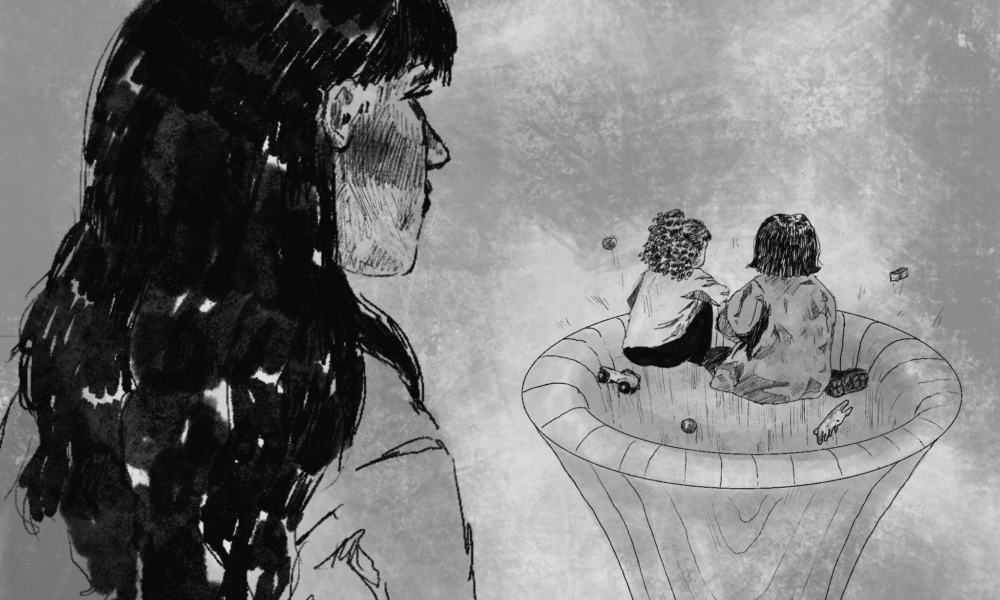I was not a political person. Yet, my identity is politicized, and every action I have taken is seen as a political statement. Driven by the wave of demonstrations in 2020 against police brutality, systemic racism, and the oppression that weighs heavily on our community—including the African diaspora, Indigenous peoples, and other racialized groups—I felt compelled to act. Frustrated by the lack of political will among decision-makers to address systemic issues and by the hesitance among some advocates and activists to commit to meaningful change, I sought ways to channel my energy into tangible solutions. I entered the work of advocacy and community building that year, organizing demonstrations, leading critical race theory workshops, and providing mutual aid support for vulnerable community members.
My work led me to the Maison d’Innovation Sociale (MIS), where I was accepted into their Civic Incubator Program’s Winter 2021 cohort. This initiative supports projects with social and environmental impact, helping them evolve from early ideas to mature solutions. The program’s 2021 cohort, which focused on resilience during the pandemic, was instrumental in my development of the Holistic Afro Youth Center, a nonprofit addressing the systemic challenges faced by youth aging out of institutional care.
At protests, I began speaking out about these injustices. People started calling me an activist and advocate—labels I never claimed but couldn’t ignore. Youth aging out of care face insurmountable challenges: A lack of stable housing, mental health support, educational opportunities, and safety nets that many take for granted. To me, it didn’t feel like activism—it felt like an inherent responsibility to shed light on these struggles and demand the change that these youth, and so many others, desperately need.
In Quebec, around 2,000 youth exit the child welfare system each year, often left to fend for themselves at just 18. While many of us rely on family into our twenties, these youth are expected to immediately become self-sufficient. It’s no surprise they are almost 200 times more likely to experience homelessness than their peers. Programs like the Programme qualification des jeunes offer limited support, but the system that once controlled their lives now leaves most of them isolated and vulnerable.
As McGill students, we hold immense privilege. We have access to world-class education, mentorship, and resources that help us navigate life’s challenges. Nearly half of Canadians aged 20 to 29 still live with a parent, benefiting from financial and emotional support. In stark contrast, youth aging out of care are thrust into independence almost overnight. Many of these youth report childhood trauma: 63.1 per cent experienced abuse, with 51.1 per cent reporting physical abuse and 24 per cent sexual abuse. Over half were involved with child protection services, often beginning before the age of six.
The consequences are stark. Out of every 1,000 foster youth in Canada, only eight will graduate with a post-secondary degree. The barrier is not a lack of ambition but the absence of foundational care networks that make success possible. This is more than a statistic—it’s a call for accountability. Youth from care deserve stable housing, quality education, mental health support, and meaningful relationships, just like any of us.
Supporting youth aging out of care demands action. By addressing their unique challenges, expanding access to critical services, and investing in their potential, we can empower them while strengthening our community. While McGill has taken steps to support former foster youth through initiatives like the Youth in/from Care Bursary and mentorship programs, more can be done. Expanding financial aid to cover living expenses and course materials, and providing dedicated advising, counselling, and peer networks tailored to youth from care, would create a more inclusive environment. By prioritizing these actions, McGill can set a powerful example of how institutions can break systemic cycles of marginalization. It’s time to stop watching from the sidelines. Let’s advocate for a future where every young person aging out of care has the support they need to build a life they can be proud of.









